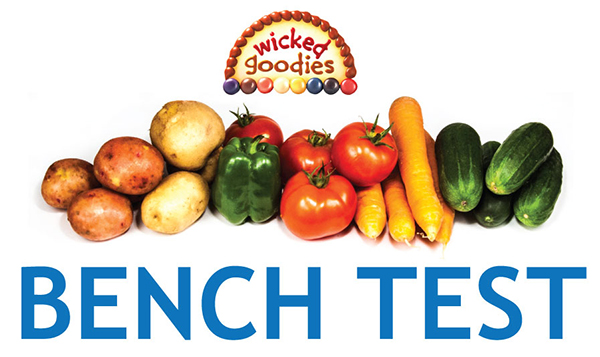
The logistics of bench test hiring and interviewing in the food industry.
Definition of a culinary bench test: A hands-on interview in which the applicant performs a set of cooking or baking skills in order to demonstrate their level of competency in a kitchen. Bench tests are longer and more rigorous than traditional interviews. Bench tests can vary in length from 1-3 hours.
What Bench Tests Measure
- The applicant’s physical strength and speed
- How the applicant moves in a kitchen
- Her level of skill with basic tasks
- How she interacts with management and employees
When does a bench test help?
Always. This type of test is a sure way to see if an applicant is fit for the position. Especially when the chef is too shorthanded to leave the kitchen, the interview can occur without interrupting production.
Sometimes the bench test goes so well that the applicant is hired on the spot. Sometimes the bench test turns into a stage or part time job.
Even if the job being offered isn’t the best fit for either party, the bench test helps forge industry connections.
When does a bench test hurt?
If an applicant lied or exaggerated about their qualifications, it will show during their bench test.
In the middle of a busy shift, a bench test applicant may get in the way of food production or service, which can endanger the applicant or other employees. Bench tests should only take place during slow production times.
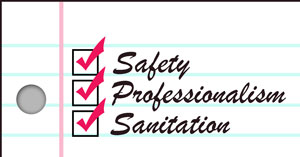
Culinary Bench Test Checklist
Safety
- Does the applicant move about the kitchen safely?
- Does she carry knives correctly?
- Does she say, “Behind you” and “Hot” when the situation calls for it?
- Does she stay out of the way of other workers?
- Does she clean up her own puddles and messes?
Professionalism
- Is applicant respectful towards other employees?
- Does he ask questions when he doesn’t know the answer?
- Does he seek to learn?
- Does he take instruction well?
Sanitation
- Does the applicant abide by the principles of food safety?
- Does she understand the principles of FIFO and labeling & dating?
- Does she wash her hands when she should?
If the employee is a good hire, the answer to all of the above should be YES.
Note: If you are concerned about liability, ask the applicant to sign a waiver before the bench test begins. If the applicant is unsafe or unproductive, stop the bench test immediately.
Examples of Bench Test Requirements
Bakery Mixer Bench Test
- Execute one or more recipes out of the recipe book
- Navigate around the kitchen to get ingredients, asking questions when necessary
- Properly measure all ingredients
- Demonstrate competence with commercial bakery equipment and ovens
- Exhibit physical strength in lifting and handling heavy equipment and ingredients
Cake Decorator Bench Test
- Frost and decorate a cake on a wheel using the hiring bakery’s frosting and equipment
- Pipe rosettes and/or roses
- Pipe a Happy Birthday cake inscription
- Make a bulk batch of chocolate ganache or buttercream frosting
Savory Line Cook Bench Test
- Dice a pile of onions, or perform a similar knife skills task
- Make an omelet or crêpe
- Properly prepare a mother sauce, such as hollandaise
- Properly filet and cook a fish
Bench Test Attire
- Dress in accordance with food safety
- Hair tied back and/or restrained
- Short fingernails, no polish
- Close toed shoes, ideally with non-slip soles
- No jewelry
- No exposed wounds
Bakery Bench Test Fail
I once gave a bench test to a woman. Her task was to make a 40 pound batch of lemon curd. She did a good job with the assigned skill. However while performing the bench test, she started talking about her drug addiction and got so emotionally distraught over the issue that she lost focus and tipped the pan, splashing the finished batch of hot lemon curd all over the floor.
Tips for Job Applicants Going into a Culinary Bench Test
- Pack a tool kit with your favorite knives and implements.
- Dress appropriately (see proper bench test attire above)
- Get a full, sober 8 hours of sleep the night before.
- Eat for energy and stamina before going in for the test.
- Don’t be late.
- Turn off your cell phone.
- Don’t chit chat too much unless the chef tries to chit chat with you.
- Avoid going into too much detail about your personal life.
- Remain focused on the job at hand.
- When communicating, speak clearly and audibly.
- When you don’t know the answer, ask for it.
- Use resourcefulness to find your way around the unfamiliar kitchen.
Benefits of performing a bench test
- You get to try on the job for a day and see if it fits.
- You get to witness your prospective boss while on the job and decide if you could work under her.
- You get to see how the inside of a different kitchen operates.
- You might pick up some recipe ideas.
- You might learn some new skills.
- You can forge contacts within the food industry.
Even if you don’t get the job, much can be gained from a culinary bench test opportunity. Bench tests are an effective way to network and interview for potential kitchen and bakery jobs. If you have a bench test coming up soon, good luck!
125 Building Blocks for Your Bakery Business
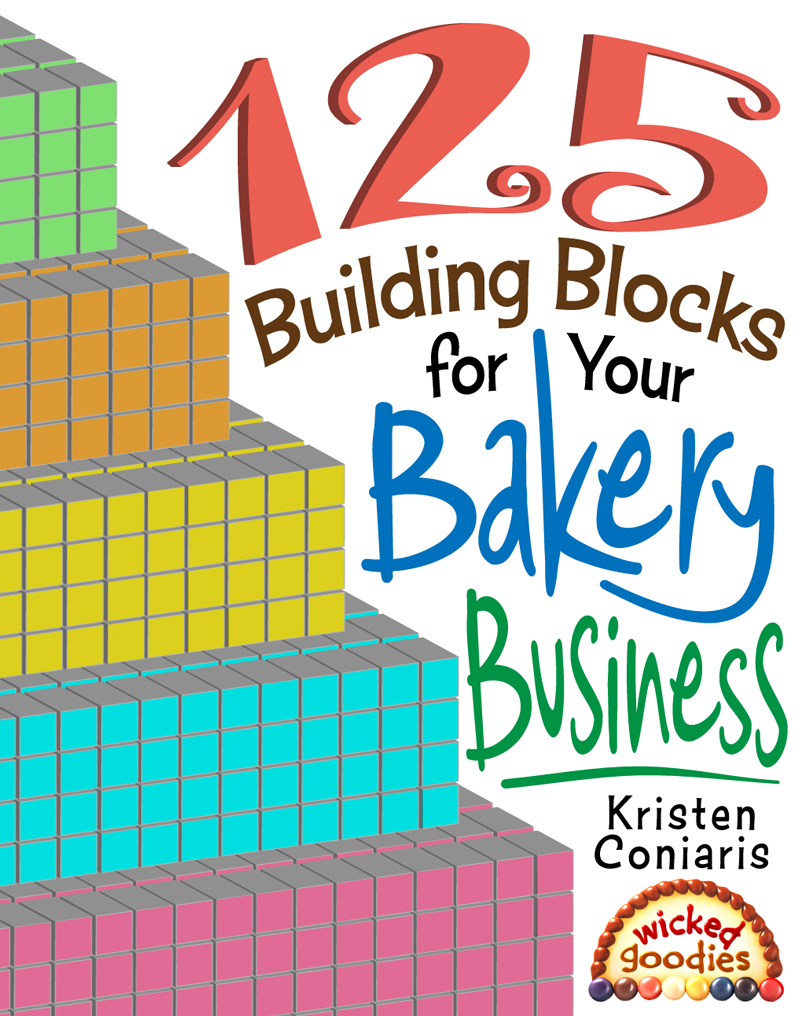




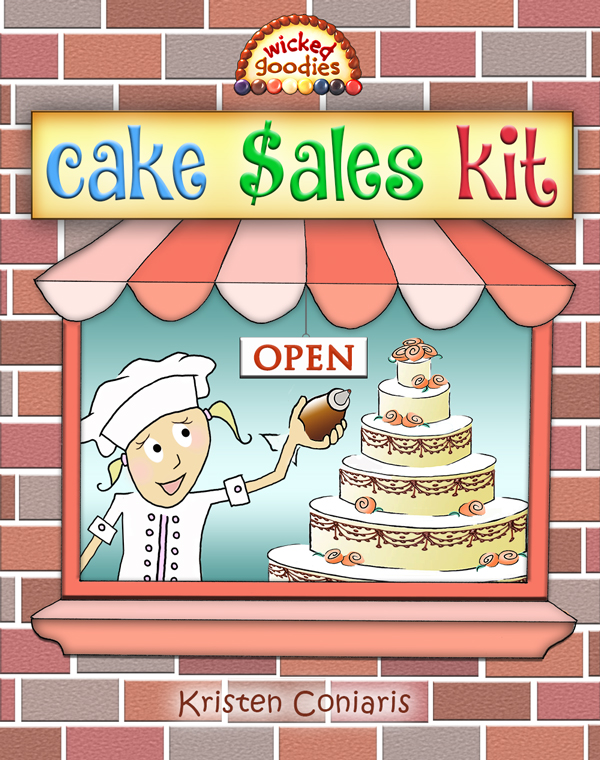
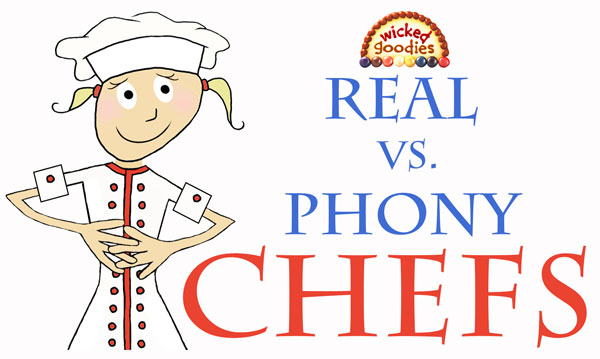
Thank you for this!!! I’m freaking out about finding employees for my first ever business venture and this is going to help immeasurably!
You’re welcome! I wrote this with you in mind.